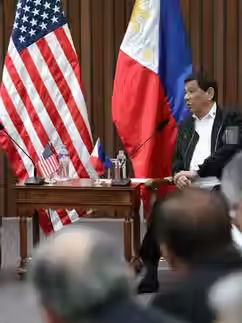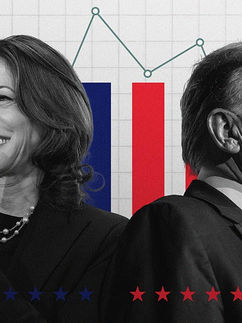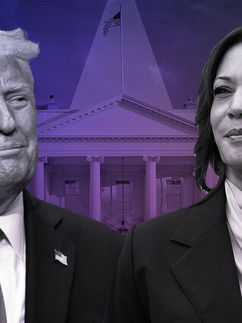Three Years, Four Presidents: To Lam’s Rise to Power in Vietnam
Tahlia Beckitt

In the last few years, Vietnam has experienced unprecedented political instability, rocked by relentless corruption allegations and continuous leadership changes. At the heart of this political turmoil is Tô Lâm, a notable figure within the Communist Party of VietNam (CPV) who was recently sworn in as the new President of Vietnam. A reputed strongman, Lâm has been relentless in his pursuit of justice. However, some agencies might suggest that under his lead, certain security matters have been overstepped.
Having had a close relationship with the former General Secretary, Nguyễn Phú Trọng, who passed away two months after Lam’s ascension, may be partially responsible for Lâm’s rise to power. Nonetheless, Vietnam’s new President is not one to be used for another’s endeavours and is a force to be reckoned with in his own right.
Whatever the secret story behind Lâm’s rise, his reign will likely have a significant influence on the direction of Vietnamese foreign policy and the strength of Vietnam’s democratic centralism. The biggest question now is whether he can finally end the instability preventing economic prosperity and stability in Vietnam.
A Brief History of the 2020s in Vietnam
On May 22, 2024, the Vietnamese Public Security Minister, General Tô Lâm, was approved by the nation’s National Assembly as the new President of Vietnam. While Lam is a familiar figure among Vietnam’s political elite, Vietnam has been shaken by a series of political controversies, particularly regarding anti-corruption efforts.
Lâm is the fourth person to hold the office of President in the last three years in Vietnam, formally preceded by Võ Văn Thưởng, who resigned from office earlier this year in relation to an anti-corruption graft campaign that has seen multiple resignations from high-level officials over the last few years. Interestingly, Lâm has spearheaded that very campaign, at the behest of Trọng, arresting politicians that are seemingly left, right and centre for mass corruption crimes (some of which were conducted during the COVID-19 pandemic and greatly affected the government’s health response). The campaign also included educational programs, the expansion of existing laws to cover a greater depth of activities and stricter penalties for the guilty.
Indeed, tracing back to previous Presidents, both Nguyễn Xuân Phúc (April 5, 2021 – January 18, 2023) and Võ Văn Thưởng (March 2, 2023 – March 21, 2024) were forced to resign following corruption scandals that tarnished both their legacies, as well as their subordinates. Since 2021, only Lâm and Võ Thị Ánh Xuân, the former Vice President and two-time Acting President, have not been incriminated by the probe as Presidents.
Given the high profile of many of the resignations and findings, many analysts speculate that Lâm has weaponised the campaign for his own purposes. However, such claims remain unproven.
Tô Lâm: The Man Behind the Probe
Lâm’s ascendancy broadly represents a desire for a return to a stable political system and to root out corruption in governance and the broader society. With the Vietnamese people having trust in their new President and his ability to prioritise anti-corruption policies, his strong man image may project a feeling of renewed confidence in Vietnamese affairs.
Although Vietnam’s presidency is a predominantly ceremonial role, with the General Secretary of the CPV holding the vast majority of power, ascension is still a significant achievement for Lâm. With Trọng’s health failing, the 80-year-old is rumoured to forgo a campaign at the 2026 election, all of which a power vacuum may soon form. As President and a long-time ally and friend of Trọng, Lâm will be ideally situated to contest further power, potentially rising to the highest office in Vietnam.
As the former Minister for Public Security, Lâm has had a long history of involvement in the public service. Working within the Ministry for over 40 years, Lâm was sworn into power as Minister in 2016, where his role provided him oversight on Vietnam’s police and intelligence services. During this period, numerous human rights watchdogs accused Lâm and his portfolio of rights violations and the unlawful suppression of critics. In 2021 alone, more than 30 people were imprisoned for criticising the government, while many others were arrested on false charges and social media was heavily censored. Since becoming President, Lâm is no longer in charge of the Ministry, and critics indicate that he may have lost some of the influence he previously enjoyed in his former workplace.
Managing the public’s frustration at the existing political instability and rights violations against the successes of the anti-corruption scheme, Lâm faces an uphill battle. As such, his initial actions will be crucial to winning widespread support, especially if he intends to turn his now additional interim position as General Secretary, following his predecessor’s death, into a long-term arrangement.
The International Implications
Following his ascension to Presidency, Lâm indicated that he will persist in cracking down on corruption and would promote Vietnamese sovereignty in foreign policy. Maintaining Vietnam’s non-aligned stance, which is based on its policy of the ‘Four Nos’ - that being, no military alliances; no foreign military bases; no involvement in external disputes; and no violence - Lâm will continue to maintain relations with both China and the US, as well as with its ASEAN neighbours. However, with the South China Sea proving to be a spot of contention between Vietnam and China, this stance will continue to be placed under pressure.
Conversely, should Vietnam’s anti-corruption campaign continue to produce strong results, the nation has the potential to fill the gap left by Malaysia’s failing response to the 1MDB scandal and gain international respect for its accountability measures.
Stabilisation of Vietnam’s political system will also translate to economic stability, therefore inviting renewed investment into the nation. With economic interest previously faltering due to Vietnam’s continued uncertainty in leadership and governance, investment from Vietnam’s fellow nations and international corporations may potentially be reinvigorated should Lâm succeed in providing continuity for the nation.
The Question of Democratic Centralism
Vietnam’s political instability has also called its principle of democratic centralism into question. As the fundamental principle of the CPV, democratic centralism promotes collective leadership by invoking democratic involvement and central control. Under the General Secretary, the President, Prime Minister, and the committees are allowed a degree of freedom and are included in the decision making process (decision-making) but are ultimately outweighed by, and supposedly controlled by, the General Secretary. With Lâm now filling both roles, his power has grown exponentially.
The continued leadership changes within Vietnam have exposed the fragility of their system, whilst Tô Lâm’s potential ambitions in discrediting his competitors and becoming the permanent General Secretary suggest a degree of power that neglects the principle of democratic centralism. Likewise, the anti-corruption campaign has demonstrated the importance of Vietnam’s central authority and exposed weaknesses in the democratic element, as high-profile purges of officials can be perceived as an intent to silence specific voices and factions within the party.
Therefore, as To Lâm gains further attention from the public and the international community, he will likely be called on to preserve the democratic elements of Vietnam’s political system. Consequently, this will generate further discourse concerning control and centralism within Vietnam. Naturally, by the time these discussions are prominent in national discourse, election time will be right around the corner.
Conclusion
Therefore, Vietnam has celebrated the rise of its latest President in what will hopefully end a sequence of political instability and leadership changes. Known for his hardline stance on security and corruption, as well as his close ties with the former General Secretary, Lâm’s ascent signifies a critical period for Vietnam. Under Lâm’s guidance, Vietnam’s foreign policy will attempt to act in a non-aligned manner, while his role within the anti-corruption campaign - responsible for deposing the two previous Presidents - will persistently generate questions about the prosperity of Vietnamese democratic centralism.
Charged with restoring stability, trust and economic prosperity, Lâm’s success will likely only be evaluated come 2026, during election time and a potential campaign for the highest office within the nation. Until then, the world will be watching, as Lâm seeks to leave both his mark on the office of President and General Secretary, holding a degree of unequalled power that has never been witnessed in Vietnam’s communist system.
Tahlia Beckett is currently studying International Relations at Curtin University and was the Future of Work delegate at the 2023 G20 Youth Summit in India. A former intern at Castle Asia in Jakarta, Tahlia is highly interested in Australia’s relations with Southeast Asia and the potential for effective and respectful diplomacy and cooperation between Australia and the broader Indo-Pacific. Tahlia has also engaged as a speaker at the 2023 World Food Forum Flagship Event and volunteers for the ASEAN-Australia Strategic Youth Partnership.

















Comments